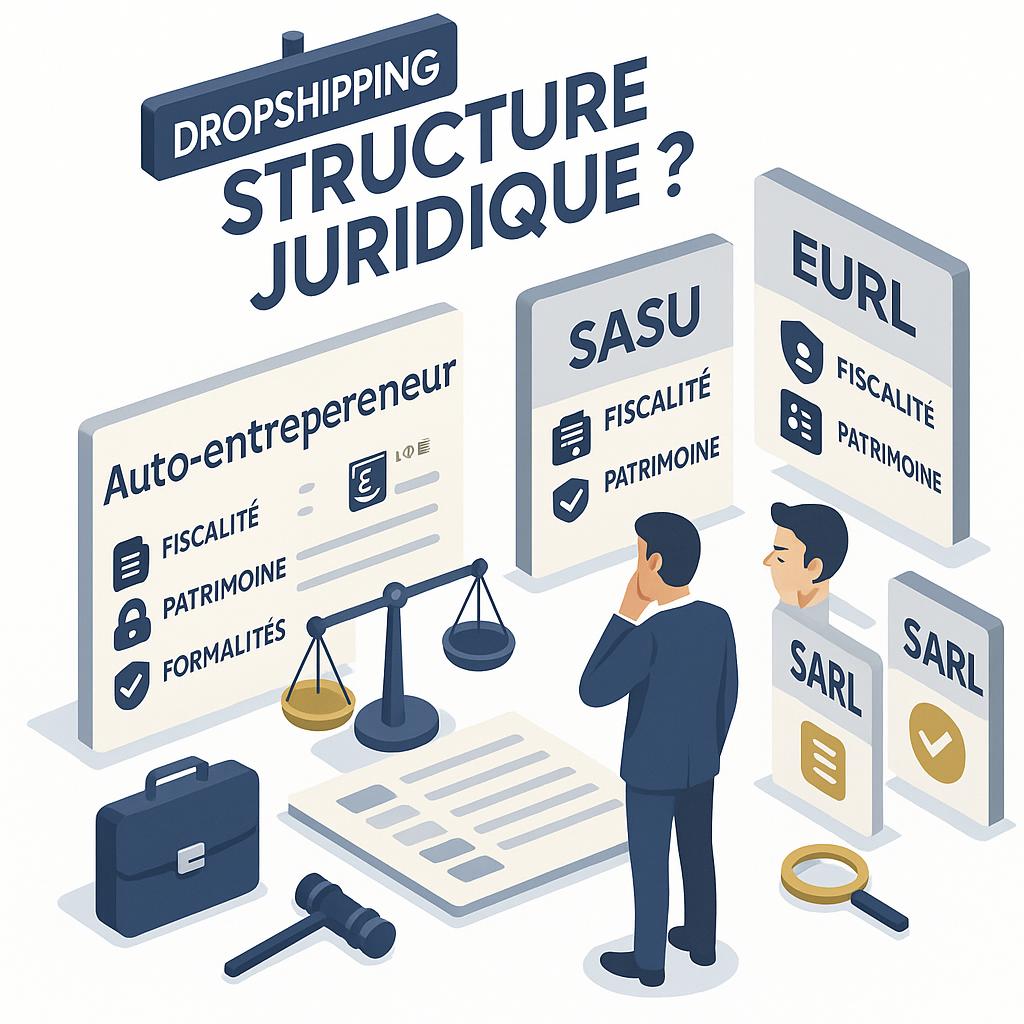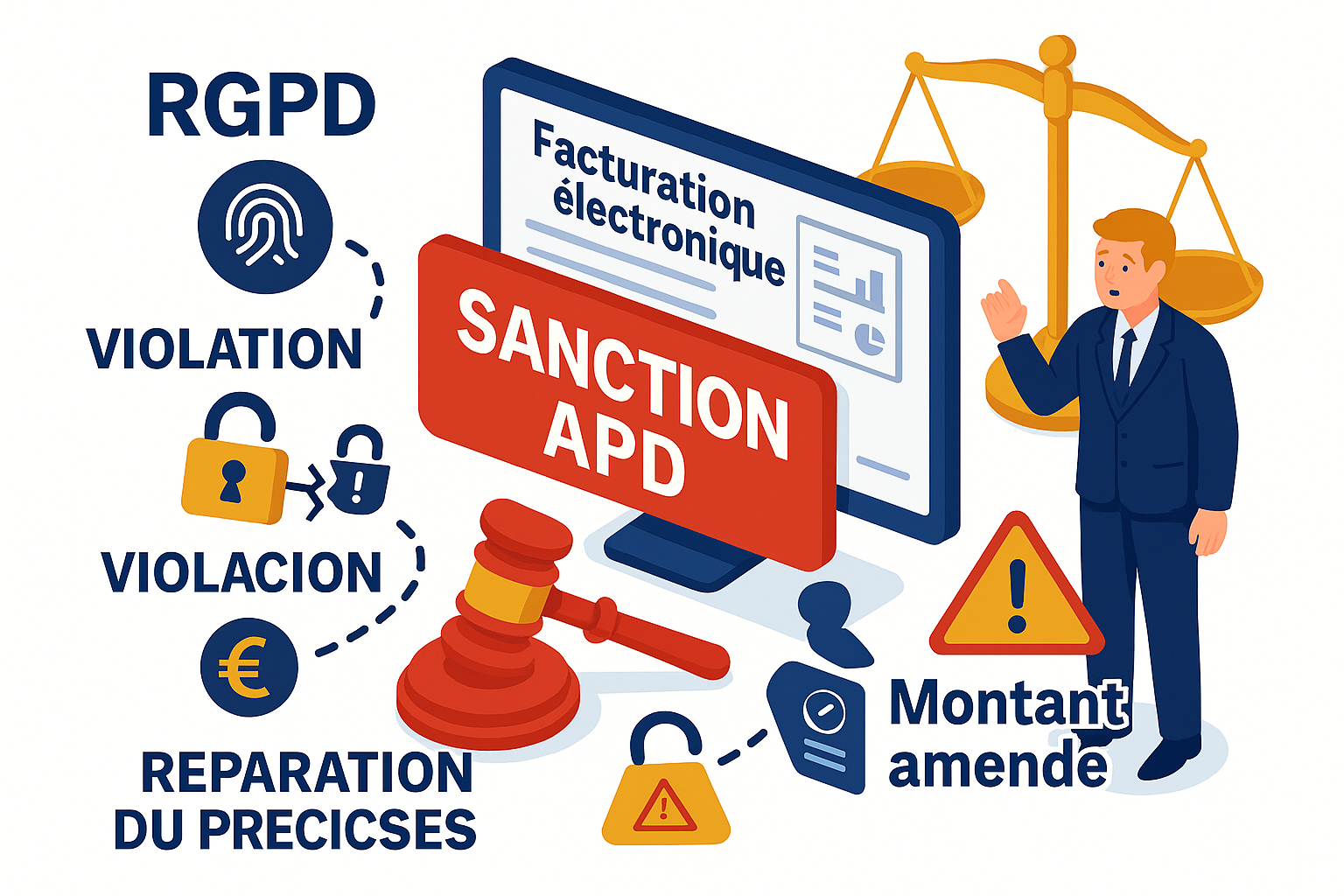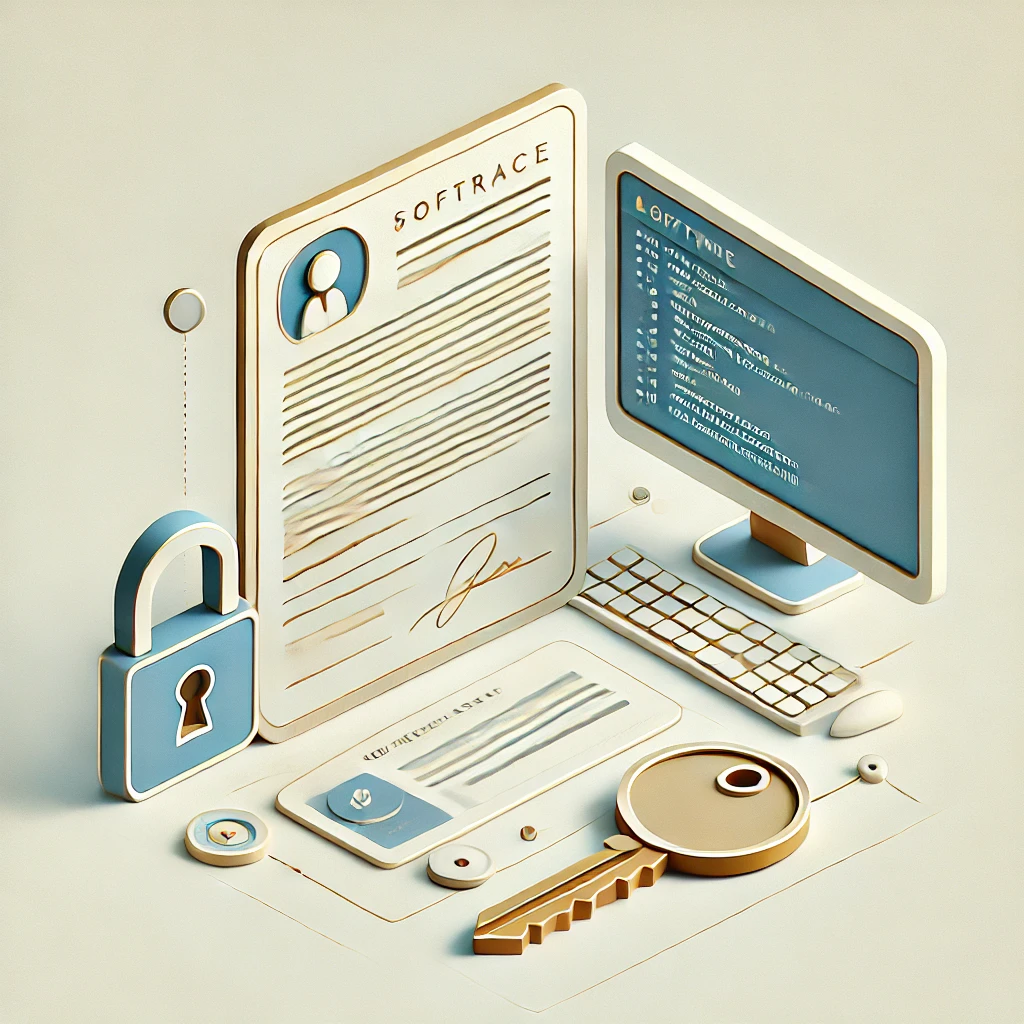Choosing the right legal structure is a fundamental step for any dropshipping entrepreneur. This decision, far from being insignificant, will have major repercussions on your development, taxation and asset protection. Between auto-entrepreneurship, SARL and SAS, each status has its advantages and disadvantages, which you should analyze in depth before making your choice.
If you need a dropshipping lawyer, contact me!
Auto-entrepreneur status: the ideal way to start dropshipping
The auto-entrepreneur status (also known as micro-entrepreneur) appeals to many dropshipping beginners because of its simplicity and speed of implementation. This status allows you to test your business concept without any major financial commitment or excessive red tape.
Setting up an auto-entreprise takes just a few clicks on the URSSAF website, with no minimum capital required. Accounting is greatly simplified, limited to a chronological book of receipts and a register of purchases if you're running a commercial business. No balance sheet, no profit and loss account: you simply declare your sales, usually on a monthly or quarterly basis.
From a tax point of view, auto-entrepreneurs benefit from the micro-tax system, which allows a flat-rate deduction for professional expenses of 71% for commercial activities. Social charges are also calculated in a simplified way, based on a percentage of sales. This transparency means you can easily anticipate your deductions.
However, this status has significant limitations for a developing dropshipping business. The sales ceiling, set at €176,200 for commercial activities, is a major constraint for ambitious entrepreneurs. What's more, the non-deductibility of actual expenses can become a handicap when you invest in marketing or external services. Finally, the lack of distinction between personal and business assets represents a significant risk to your personal assets in the event of difficulties.
The SARL: balancing protection and control
The Limited Liability Company (SARL) offers a more structured framework, suitable for dropshipping projects that have gone beyond the test phase. This legal form has the major advantage of protecting your personal assets: in the event of difficulties, creditors will only be able to seize the company's assets, provided of course that your management has not been at fault.
Setting up a SARL requires the drafting of articles of association and various administrative formalities. Although the minimum share capital is set symbolically at €1, it is generally advisable to provide for a more substantial amount to reassure your commercial and financial partners. The SARL can be a single-person company (EURL) or have up to 100 associates, allowing you to bring investors or partners into your project.
From an accounting and tax point of view, the SARL involves more obligations. Full accounting is required, including the preparation of annual financial statements (balance sheet, income statement and notes). This rigorous accounting system, though more restrictive, gives you a precise view of your financial situation, which is particularly valuable for effectively managing a growing dropshipping business.
The SARL tax system offers a degree of flexibility. By default, profits are subject tocorporation tax (IS), currently at a reduced rate of 15% on the first €42,500 of profits. This tax advantage means that profits can be retained to finance the company's growth. EURLs can still opt to pay income tax (impôt sur le revenu - IR), bringing their tax structure into line with that of auto-entrepreneurs, but with deductibility of actual expenses.
The majority manager of a SARL is affiliated to the regime for non-salaried workers (TNS), with social security contributions calculated on his or her remuneration. These contributions are generally higher than those of an employee, but they give entitlement to more comprehensive social protection than that of an auto-entrepreneur.
SAS: flexibility and development prospects for dropshipping
Today, the Société par Actions Simplifiée (SAS) is the preferred legal form for start-ups and companies with high growth potential, including in the dropshipping sector. Its high degree of statutory flexibility means you can tailor the organization precisely to the specific needs of your business.
As with the SARL, the creation of an SAS requires the drafting of articles of association, but these offer far greater contractual freedom, particularly with regard to rules of governance and relations between associates. This flexibility means you can tailor your company's structure to suit your vision and development strategy.
The main advantages of an SAS for a developing dropshipping business are many:
- An advantageous social status for the chairman, who is treated as an employee under the social security system
- Great flexibility in bringing in new investors, facilitating fund-raising
- The ability to create different share categories with specific rights
- A professional image appreciated by business and financial partners
From a tax point of view, the SAS is subject tocorporate income tax under the same conditions as the SARL. This tax advantage, combined with the possibility of optimizing the manager's remuneration (dividends and salary), makes it a structure particularly suited to profitable businesses.
However, the SAS has a number of drawbacks, notably higher operating costs (accountancy fees, costs of publishing accounts) and more complex administrative formalities than the auto-entreprise. However, these constraints are reasonable in view of the advantages.
Comparative analysis of criteria for choosing a legal structure for dropshipping
Protection of personal assets
The protection of your personal assets is a decisive factor in the choice of your legal structure. In a dropshipping business, you may face a number of risks: disputes with dissatisfied customers, problems with suppliers, or financial difficulties.
The auto-entrepreneur benefits from no separation between personal and professional assets: in the event of difficulties, all your personal assets (with the exception of your main residence) can be seized. This vulnerability represents a significant risk, especially for a business involving international commercial relations such as dropshipping.
Conversely, SARLs and SASs offer real protection, limiting your liability to the amount of your contributions. This security is particularly valuable when your business is expanding, and the associated risks are increasing proportionately.
Credibility and professional image
The image conveyed by your legal structure has a significant influence on how your business is perceived by your trading partners, especially foreign suppliers. In dropshipping, trust is a key factor in obtaining favorable terms.
The auto-entreprise, while perfectly legitimate, can sometimes be perceived as less professional, particularly in an international context. The SARL, and even more so the SAS, inspire greater confidence among suppliers, payment service providers and potential investors.
This psychological dimension, often overlooked, can have a concrete impact on your business negotiations and your ability to establish solid partnerships, essential to the success of your dropshipping business.
Tax and financial optimization
The tax dimension is a fundamental criterion in the choice of your legal structure. Each status has its own specific features, which may be more or less advantageous depending on your situation.
For a start-up business generating modest revenues, the auto-entrepreneur micro-tax system offers appreciable simplicity and a reduced tax burden. However, as soon as your business becomes significantly profitable, or you incur significant costs (digital marketing, website development, etc.), corporate income tax generally becomes more advantageous.
SARLs and SASs, which are subject to corporation tax, allow you to deduct all your business expenses and benefit from a reduced rate on your first €42,500 of profits. These structures also offer more options for optimizing your remuneration, by judiciously combining salary and dividends according to your personal situation.
A dropshipping lawyer will be able to advise you precisely on the structure best suited to your specific tax situation, taking into account your short- and medium-term objectives.
Scalability and growth prospects
Your choice of legal structure must anticipate future developments in your dropshipping business. A common mistake is to consider only the current situation, without taking into account future development prospects.
Auto-enterprise, limited by its sales ceiling, is rarely a sustainable solution for an ambitious business. Subsequent conversion to a company (SARL or SAS) is possible, but involves administrative procedures and costs that could have been avoided with careful prior consideration.
The SAS undeniably offers the greatest flexibility to support your growth. It facilitates the entry of new investors, enables you to set up profit-sharing mechanisms for your employees, and adapts easily to changes in your corporate governance. These advantages make it the preferred structure for projects with strong development potential.
Development strategies according to your objectives
Your choice of legal structure may evolve over time, depending on the maturity of your dropshipping business and your personal objectives. A strategic approach is often to gradually adapt your legal framework.
To test a dropshipping concept without excessive commitment, starting up as an auto-entrepreneur offers undeniable advantages. This experimental phase will enable you to validate your business model and build up your first customer references.
As soon as your business shows encouraging signs of viability, the transition to a company (SARL or SAS) becomes relevant. Ideally, this should happen before your sales approach the auto-entreprise ceiling, and certainly before your exposure to risk becomes significant.
The choice between SARL and SAS will depend mainly on your medium-term ambitions. For a stable business with a restricted circle of associates, the SARL offers a balanced and economical framework. For a project with strong growth potential, substantial financing requirements or complex governance, the SAS is generally the most suitable option.
Conclusion
The choice of legal structure for your dropshipping business deserves careful consideration, taking into account not only your current situation, but also your development prospects. The auto-entrepreneur, the SARL and the SAS each offer specific advantages, adapted to different stages of maturity and entrepreneurial profiles.
The optimum decision will depend on many personal factors: your risk aversion, your growth objectives, your personal tax situation, and your initial investment capacity. A personalized analysis of these factors will enable you to identify the legal structure best suited to your specific dropshipping project.




